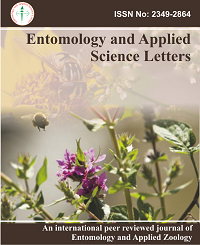
Applied Science Letters

Authors are required to include a 'Competing Interests' statement as part of their submission. The presence of a competing interest does not automatically result in non-publication, but it ensures transparency for both reviewers and readers. In cases where no competing interests exist, a standard disclosure is made: 'No competing interests were disclosed.'
Competing interests can manifest in various forms, encompassing both financial and non-financial aspects. Instances of competing interests include, but are not restricted to:
Authors affiliated with pharmaceutical companies or other commercial entities sponsoring clinical trials, field studies, or other research endeavors should explicitly declare these as competing interests during the submission process. Additionally, the nature of each author's association with such organizations should be detailed in the 'Competing Interests' section.
